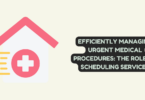
Project Manager
Project management is an essential role in any organization that requires the successful execution of complex projects. As a project manager, you are responsible for ensuring that projects are completed on time, within budget, and to the satisfaction of all stakeholders involved. To do this, you need a wide range of skills, from leadership and communication to problem-solving and analytical thinking.
In this blog post, we will explore the top skills project managers need to succeed in today’s fast-paced business world. Whether you are just starting your career in project management or looking to enhance your existing skills, this post will provide you with valuable insights and practical tips to help you achieve success.
Strategic Thinking
It is the ability to think and plan strategically and to see the bigger picture beyond just the day-to-day project tasks. A strategic thinker is someone who can anticipate challenges, identify opportunities, and develop plans to achieve long-term goals. They are also able to make tough decisions based on careful analysis of data and information and are always looking for ways to improve processes and outcomes.
Communication
In order to succeed, project managers must be able to communicate clearly and effectively with team members, stakeholders, and clients. This includes being able to articulate project goals and objectives, delegating tasks and responsibilities, and providing feedback and guidance. Additionally, project managers must have strong listening skills, as they need to be able to understand and address the concerns and feedback of their team members and stakeholders.
Strong communication skills also involve the ability to adjust communication style based on the audience, whether it be a technical team member or a non-technical stakeholder. Ultimately, effective communication is essential for building trust, fostering collaboration, and driving project success.
Time Management
Effective time management begins with understanding the overall scope of the project, and then breaking it down into manageable tasks and milestones. The ability to prioritize these tasks based on their level of importance and urgency is also crucial. A project manager must be able to identify potential roadblocks and proactively address them before they become major issues that derail the project timeline.
Additionally, a project manager must be able to allocate resources and delegate tasks efficiently to ensure that team members are working effectively and efficiently. By mastering time management, a project manager can ensure that projects are completed on time and within budget, which is essential for maintaining client satisfaction and building a successful career in project management.
Leadership
As a project manager, you are responsible for guiding your team toward a common goal and ensuring that everyone is on the same page. This requires strong leadership skills, including the ability to communicate effectively, delegate tasks, provide feedback, and motivate team members. A good leader is able to inspire and empower their team to work together towards a shared vision, while also holding team members accountable for their performance.
Additionally, a strong leader is able to adapt to changing circumstances, make tough decisions when necessary, and maintain a positive and productive work environment. Developing your leadership skills is essential for success as a project manager, and can help you to build a high-performing team that is capable of achieving great results.
Problem Solving
Project managers are constantly faced with unexpected challenges that need to be tackled in a timely and efficient manner. A good problem solver has the ability to analyze complex situations, identify the root cause of the problem, and come up with practical solutions to resolve it. In order to develop strong problem-solving skills, project managers should be able to think critically, be creative, and have a positive attitude toward finding solutions.
They should also be able to collaborate with team members and stakeholders to gather insights and explore alternative approaches. Ultimately, by honing their problem-solving skills, project managers can help their team to overcome obstacles and achieve project success.
Conclusion
Project management is a multifaceted discipline that requires a broad range of skills to be successful. From communication and leadership to risk management and problem-solving, a project manager must possess a diverse set of skills to ensure timely and efficient project completion.
It is evident that project management is not an easy task, but with the right skill set, one can navigate the complexities of a project effectively. By honing these skills and continuously learning, project managers can elevate their careers and be an integral part of any organization’s success.






